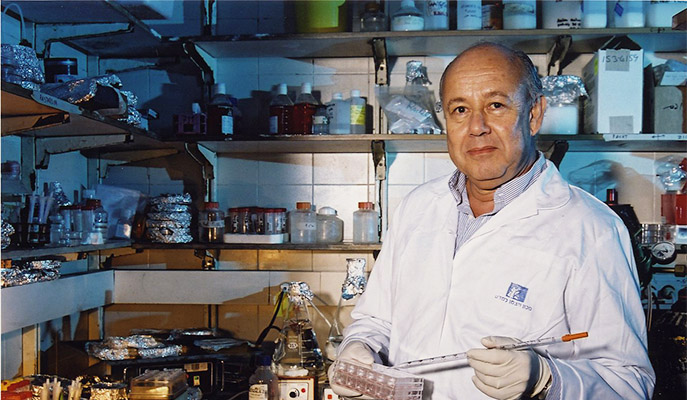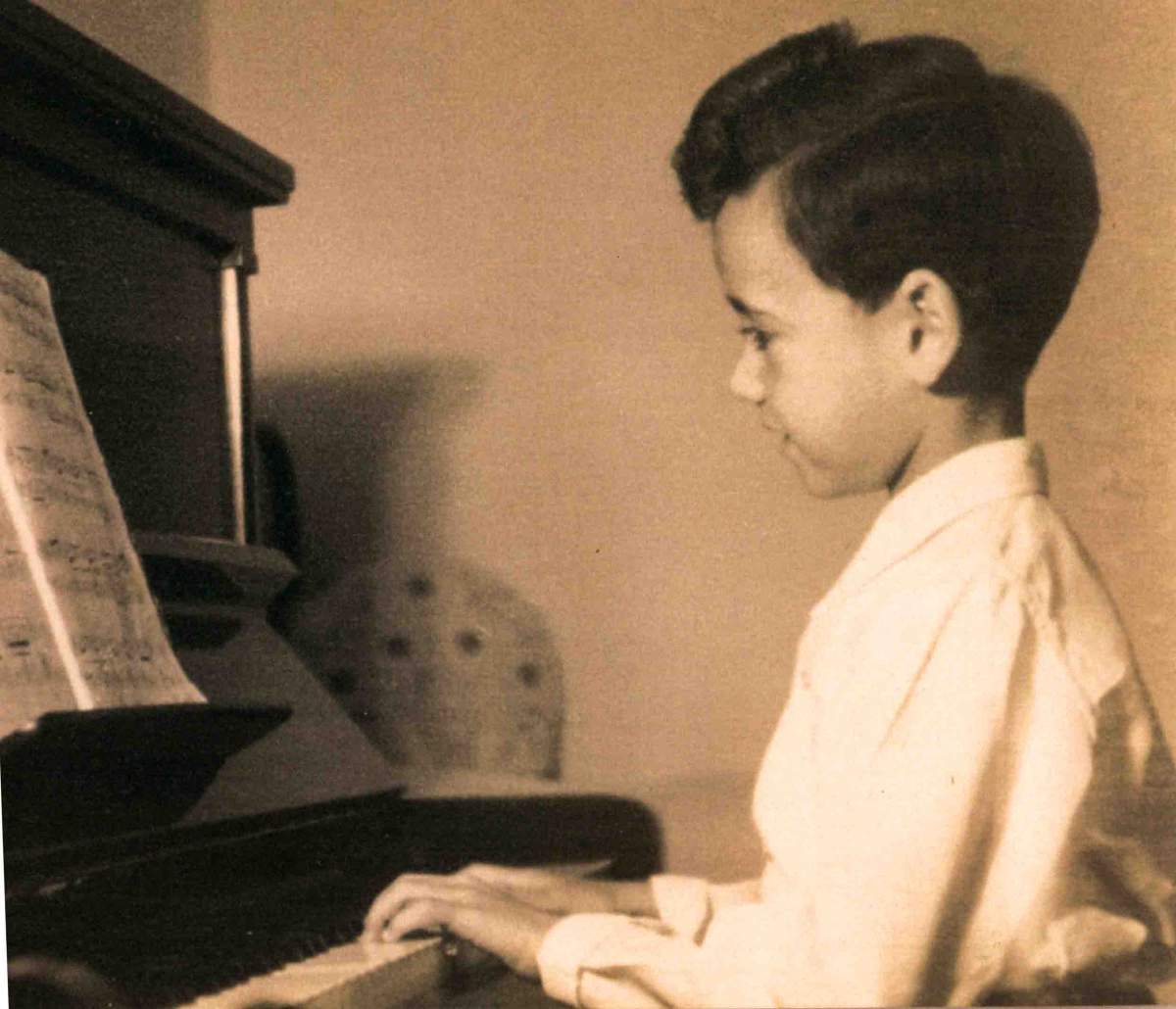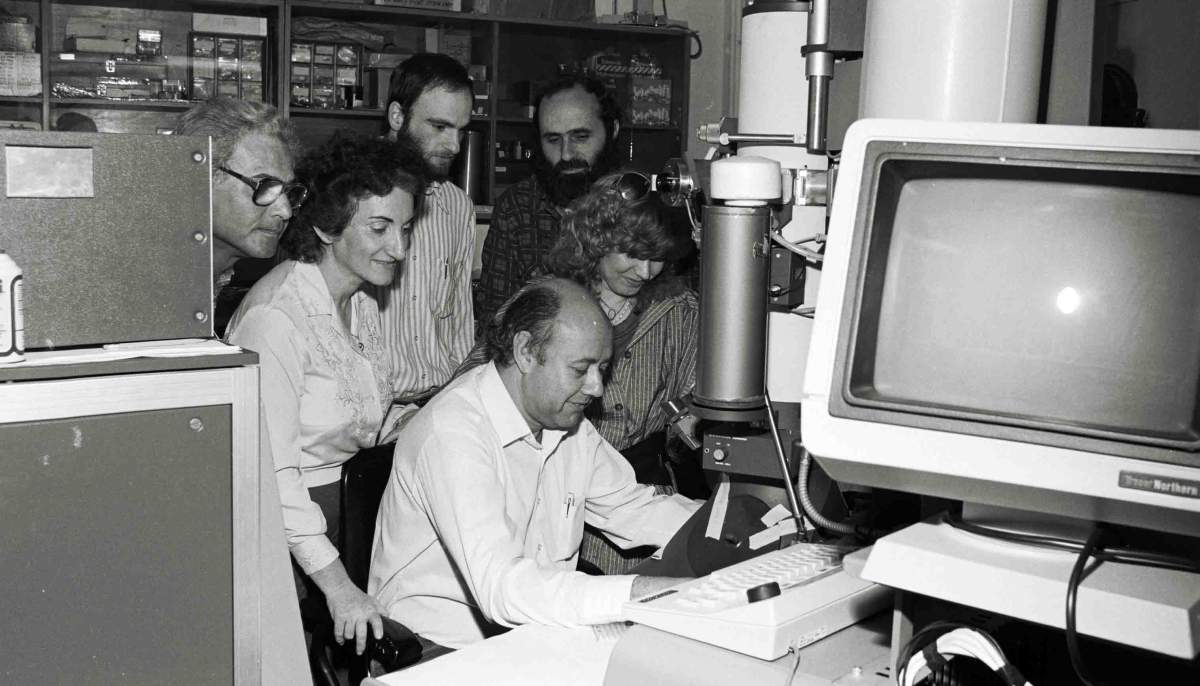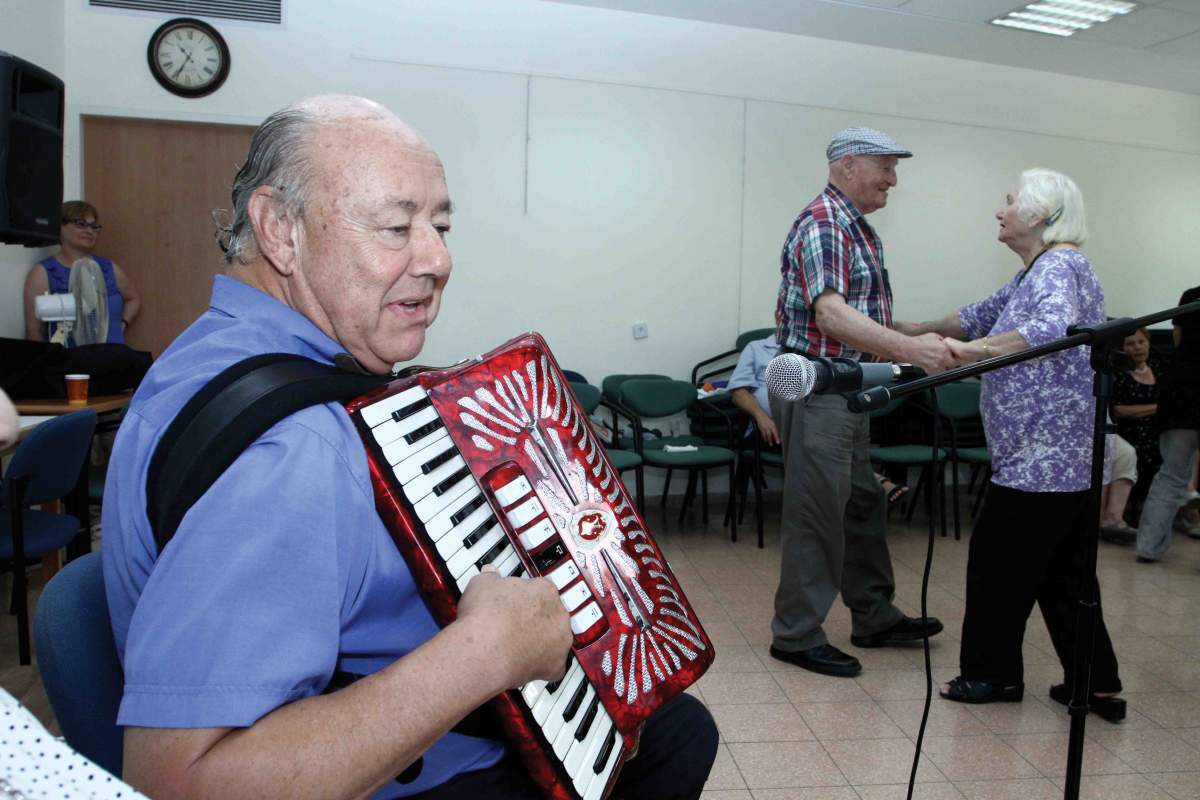Are you a journalist? Please sign up here for our press releases
Subscribe to our monthly newsletter:

It was the hardest dilemma of his life: Should he devote himself to music, turn to understanding the secrets of life or follow the path of artistic expression? Abraham (Avrumi) Amsterdam, today an emeritus professor at the Weizmann Institute of Science, was in his late teens. Choosing science would lead him on a life-long search for the molecules that serve as early markers of cancer. But music did not leave him alone.
Avrumi grew up in Haifa. His family struggled to get by, but they managed to scrape together the money to buy a piano. He was then five, and he remembers sitting down, testing the keys and, after a few tries, playing entire tunes. Realizing his talent, his parents sent him to the Duniya Weizmann Music School, where he was a model student. To help pay for his lessons, he tutored other students who had a harder time keeping up. At the same time, he finished his regular high school studies in Haifa, and he was then drafted into an IDF paratrooper unit.

By the time he was discharged, Amsterdam had decided to go into science and save music for his spare time. He entered a BSc program in biochemistry and microbiology at the Hebrew University of Jerusalem. But music would, again, help him pay his way. “I went into the Shekem department store and bought an accordion. I taught myself to play, and I played in bars and at events until I finished my degree.” Amsterdam soon became a teaching assistant – of Prof. Abraham Loyter, at Hebrew University – and at the same time he took lessons with one of the best accordionists in Israel, Yehuda Oppenheimer.
After completing his PhD in the Chemical Biology Department of the University, he conducted his postdoctoral research in New York, at Rockefeller University, under the guidance of Prof. George Palade and Prof. James Jamieson. Amsterdam recalls the three years he spent there as a great period in his life. But he wanted to be a part of the Weizmann Institute of Science. While he was waiting for an answer from the Institute, he received offers from a number of other prestigious universities in the US. But once he was accepted to the Institute, he decided to come back to Israel, to be near his family.
In 1973, Prof. Amsterdam joined the Hormone Research Department. Focusing on the ovaries, he and his research group were the first to produce an immortal line of ovarian cells that could be grown in culture and that would continue to respond to gonadotropic hormones – hormones that cause the ova to mature. Such cell lines are still used in labs around the world today.

Early on, Amsterdam began working with physicians and patients, including research on human tissue, in a period in which such collaborations were not standard in scientific research. In recent years, he discovered two unique molecules that originate in the embryo, and which in combination can promote the growth of ovarian cancer. In the future, this insight may lead to better treatments for ovarian cancer, even some that could prevent its growth before symptoms appear. It has since been observed by Amsterdam that a similar combination of factors may be involved also in pancreatic cancer.
Over the years, Amsterdam’s lab has been home to researchers from around the world, including some from Austria, Finland, Japan, China and South Korea. They came as doctoral students, postdocs and visiting scientists on Sabbatical, and all found a warm reception at the Institute. Prof. Byung-Sun Suh was one of these. Suh finished his PhD in Amsterdam’s lab and went on to help found Handong Global University, where he eventually became dean of students. He returned to Amsterdam’s lab as a visiting scientist 13 years later, saying: “I missed that intensive lab work. But I felt at home right away.”
Although heading a lab took quite a bit of time, Avrumi kept up with the accordion, playing at every opportunity. About 10 years ago, he established a volunteer group that performs for the elderly, disabled, special-needs children and anyone who needs a boost. “Volunteering and the warm connections I form with people give me great satisfaction,” he says. “I’m happy with a piano beside me or an accordion in front of me. Making music is what brings me to life.”

Now aged 80 and less mobile than he used to be, Amsterdam reflects: “I have worked in the top Institutes in the world, and the level of research at the Institute is up with the best of them. I am grateful to the Weizmann Institute of Science for enabling me to freely focus on my research, while providing all the support I needed. Now I still open my computer at home and work as much as I am able.”